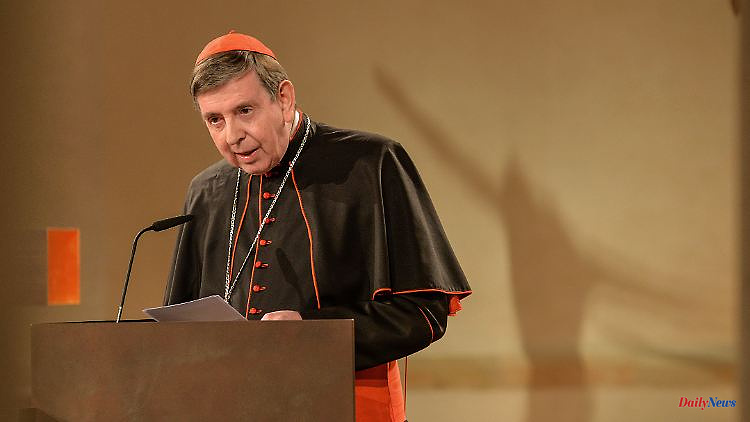With a Nazi comparison, a high-ranking official at the Vatican has angered the German bishops. Instead of an apology, Curia Cardinal Koch even continues to pour fuel on the fire. The city of Schwäbisch Gmünd invites him.
The Swiss Curia Cardinal Kurt Koch does not want to take back controversial statements with a reference to the Nazi era. "I will reply immediately, but I cannot withdraw my fundamental statement, simply because I have in no way compared the synodal path with Nazi ideology, and I will never do so," wrote the former bishop of Basel in one of the statement published in the Catholic "Tagespost".
The 72-year-old cook had previously said in an interview with the "Tagespost" that it irritated him if, in addition to the recognized sources of the Catholic faith, new findings were also to be consulted in order to adapt the teaching. "Because this phenomenon already existed during the National Socialist dictatorship, when the so-called "German Christians" saw God's new revelation in blood and soil and in the rise of Hitler." The "German Christians" were a Protestant current that wanted to adapt Christianity to the racist ideology of the Nazis.
The chairman of the German Bishops' Conference, Georg Bätzing, had described Koch's comparison as a "completely unacceptable lapse" and called for an immediate public apology. Otherwise he will officially file a complaint with the Pope.
As part of the synodal path reform process, German Catholics are currently discussing whether Catholic teaching needs to be further developed in places. The church's negative attitude towards homosexuality is in conflict with scientific knowledge. These must be taken into account, demand reformers.
In his statement, Koch denied that he had compared the synodal path with the mentality of the "German Christians". "I have to realize that memories of apparitions and phenomena in Germany during the National Socialist period are obviously taboo," he explained. "I apologize to those who feel hurt by me and assure them that this was not and is not my intention. However, I cannot withdraw my critical question."
In a reaction, Bishop Bätzing described this statement as unsatisfactory. Koch even makes things worse when he claims that remembering the Nazi era is apparently taboo in Germany. "I resolutely reject this renewed allegation," said Bätzing. "We are not creating a taboo, rather it is a taboo in view of the victims of National Socialism to make comparisons with National Socialist thinking, which led to these very victims, with any modern thinking."
Bätzing considers Koch's assertion that he did not mean the synodal path to be unconvincing. Rather, his statements did not allow for any other reading "other than that he puts the synodal assembly (...) on an equal footing with the "German Christians" and, of course, because that is the meaning of a comparison, he places the synodal members in the horizon of the regime, the unimaginable brought suffering, especially to the Jewish people". He still expects a clear distancing from Koch.
The city of Schwäbisch Gmünd in Baden-Württemberg promptly took action and invited Koch out. A spokesman for the town hall announced that he would not be entering his name in the city's golden book tomorrow, Saturday, as planned. "In the context of the statements made by the church dignitary and the discussions about it, such an event is currently not feasible from the city's point of view," said the spokesman.












